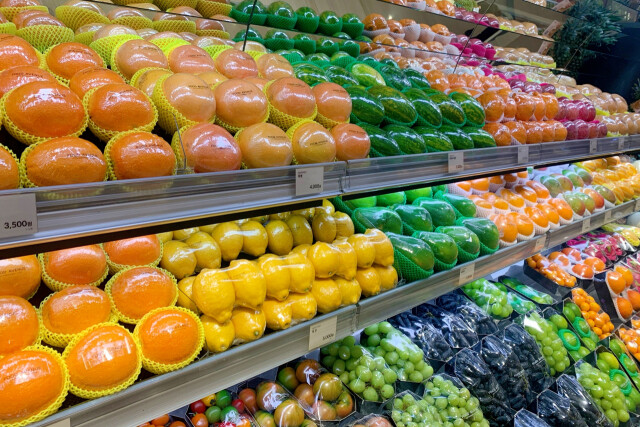
Seoul - South Korea's imports of fresh fruits such as bananas and pineapples have reached a record high in 2024, exceeding 1.4 billion dollars for the first time. This surge in imports is largely attributed to poor domestic fruit harvests, which have led to increased prices and greater reliance on imported produce.
According to a report by the Korea Rural Economic Institute (KREI), the import value of 12 major fresh fruits reached an estimated 1.447 billion dollars in 2024, a 20.1% increase from the previous year. The 12 major fresh fruits include bananas, pineapples, mangoes, avocados, grapes, kiwis, cherries, pomegranates, blueberries, oranges, lemons, and grapefruits.
This figure surpasses the previous record of 1.332 billion dollars set in 2018 by 8.6%. The increase in imports reflects a growing demand for foreign fruits in South Korea, driven by rising prices of domestic fruits due to poor harvests. The government has also expanded the application of tariff quotas on imported fruits to stabilize prices and ensure sufficient supply.
The KREI predicts that fruit imports will continue to rise in the coming years, citing factors such as climate change and decreasing domestic fruit production. The institute's "Agricultural Outlook 2025" report forecasts that total fruit imports, including fresh, dried, and frozen fruits, will reach 817,000 tons in 2025, a 6.8% increase from the previous year. The report also projects that fruit imports will reach 865,000 tons by 2034, representing an average annual increase of 0.6%.
In addition to domestic factors, external pressures such as potential trade conflicts with the United States could further exacerbate the situation. With the possibility of increased tariffs on US agricultural products, South Korea may face additional challenges in securing its fruit supply.
The record-breaking fruit imports highlight the challenges facing South Korea's agricultural sector, particularly in the face of climate change and fluctuating domestic production. As the country continues to rely on imported fruits, it remains to be seen how these trends will impact the long-term sustainability of the domestic fruit industry.
[Copyright (c) Global Economic Times. All Rights Reserved.]






























